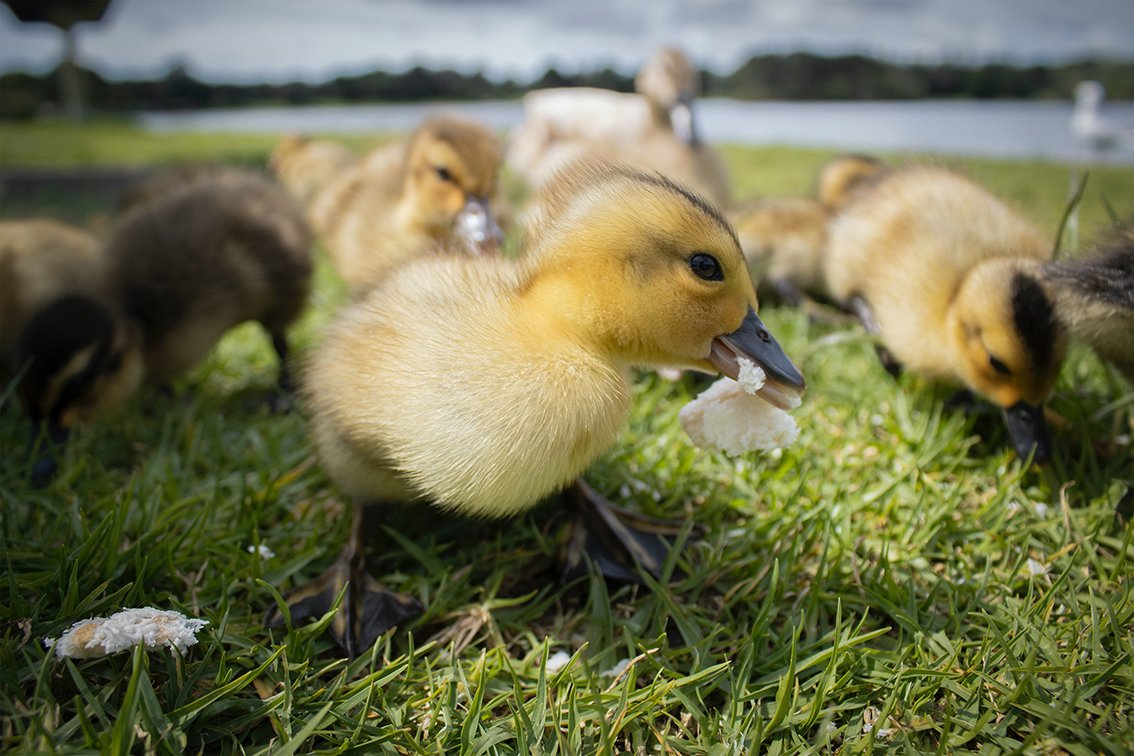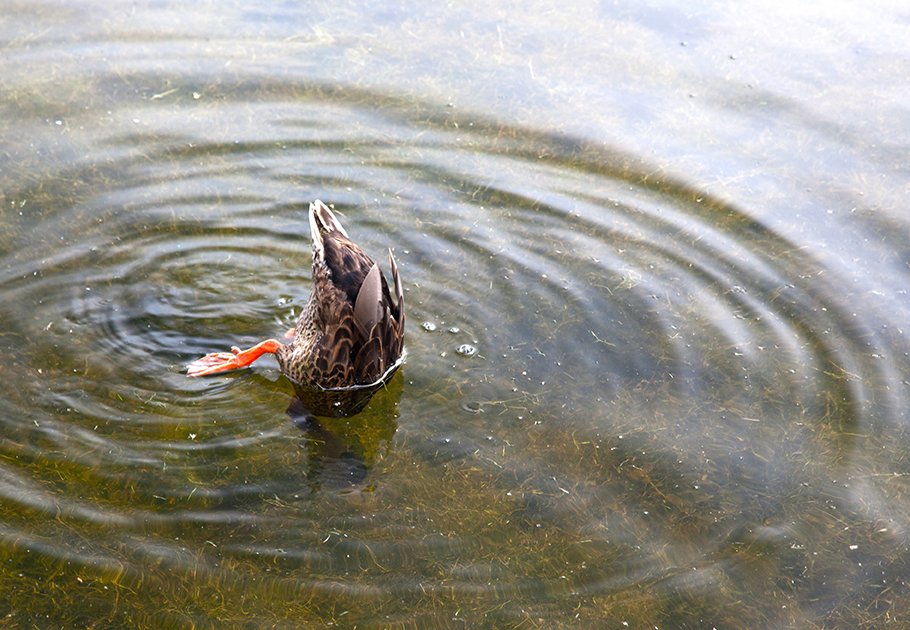What to feed ducks – according to science
The simple things in life sometimes bring the greatest joy - like feeding the ducks at your local pond. The next time you pay your feathered friends a visit, consider introducing some variety into the food you give them. Just like for us humans, a balanced diet is important for wild animals. The large amounts of bread that people feed wild birds may be well-intentioned, but they could be doing them harm.

Feeding wild birds means that they need to spend less time foraging, which allows them to build their strength and produce more chicks. But this could also make birds dependent on the food humans provide and cause malnutrition, as the nutritional value of processed food is likely to differ greatly from their natural diet. By encouraging birds to congregate around a food source, there is also an increased risk of disease transmission.
To understand how feeding ducks and other wild birds affects their health, Sara Burt, Ronald Corbee and Cornelis Vos embarked on a study of birds living in seven public areas throughout Amsterdam, including squares and parks. They examined what kind of foods people were feeding them, and compared its nutritional value with the nutritional requirements expected for each species.
For birds, bread is actually the worst option
Why bread is bad
Bread was by far the most popular choice of food offered to wild birds, making up two-thirds of the total. Most people feed birds so as not to waste bread or meal leftovers, but for birds, it’s actually the worst option. The nutritional value of bread is not a good match for the needs of wild birds. It’s deficient in amino acids, fatty acids and several vitamins and minerals, but full of carbohydrates and salt - all the stuff birds don’t need and little of what they do. If birds are overwhelmingly eating bread instead of natural options, it could lead to health problems. In many ways, this is unsurprising. Just imagine how you would feel if your diet only consisted of bread. But what should you feed them instead? Here are some options, ranked from best to worst.

Don’t overdo it
The final piece of advice is don’t overfeed. If everyone fed ducks with small quantities of a certain food, they might end up eating too much of it in the end, so variety is key.The research team also found that people often overfeed birds. Food accumulating in a pond goes mouldy and encourages bacteria which can leach oxygen from the water and produce toxins. There will inevitably be leftovers that either turn into litter or food for other animals. Based on the calculations, this surplus of food would, on average, provide enough energy to sustain 153 rats per study area. Brown rats prey on the eggs of waterfowl and young ducklings. This is normal behaviour, but an abundance of rats could skew the natural balance between the species. So be careful with overfeeding, or you might actually reduce the number of ducks in your local pond.
In this way, the Public Health Service of Amsterdam hopes to decrease animal pests and to improve water quality
Converting into policy
Jan Buijs, researcher at the Public Health Service, GGD of Amsterdam, uses the results to address the causes of animal pests. 'In particular, we wanted to know to what extent leftovers were being fed to birds. With this study we were able to show that a lot of food remains on the waterfront. This attracts rats and deteriorates the water quality. Based on these results, a bird feeding ban has now been imposed in certain areas, and the city of Amsterdam offers alternatives like bread containers. Local residents can use these containers to throw away their leftover bread, which is then disposed and fermented in a responsible way.'
According to Buijs, feeding ducks will never completely disappear. 'It makes people happy, and it allows children come into contact with animals and nature. But with these measures, city management hopes to see a reduction in the number of reports of rat pests, and an improvement in water quality. And watching ducks to see how they find food on their own can also be fun enough, of course.'
Scientific publication
Sara A. Burt, Cornelis J. Vos, Jan A. Buijs, Ronald J. Corbee: Nutritional implications of feeding free-living birds in public urban area
Journal of Animal Physiology and Animal Nutrition, 2021 Mar; 105(2):385-393.
doi: 10.1111/jpn.13441
What should you feed ducks instead of bread? Here are some options - ranked from best to worst:
Seeds and nuts
Bird seed is one of the best options, but only in limited amounts - which goes for all the food in this list. Ducks should predominantly eat greens from their own environment, like grass, as well as small fish, and frogs - everything they’d usually have no trouble finding in a pond. Still, seeds and nuts are a good choice because of their high nutritional value. They’re rich in fat with a high level of essential fatty acids, which means it’s wise to only feed birds with small amounts of seeds and nuts.
Fruit and vegetables
Vegetables, such as sweetcorn, lettuce and peas, and fruit, including apple and banana pieces, are great as a source of fibre and water. But they also provide essential vitamins.The downside is that large quantities can cause stomach upset, especially fruit, but also vegetables high in carbohydrates, like carrots. Try to balance small amounts of these with seeds and nuts.
Rice
Rice, both cooked and uncooked, isn’t a bad choice. It provides a good source of energy but is quite low in nutritional value. Feeding birds with large quantities of rice can result in deficiencies in other nutrients. It’s also important to only give plain rice - never seasoned or fried rice. Giving lots of uncooked rice can give ducks a sore stomach because it reacts with water in their gut. Uncooked rice is perfectly safe in small doses though - in spite of what urban myths might tell you.
Leftovers
Leftovers of the processed foods people like to eat - think french fries and pizza crusts - shouldn’t actually be in this list. They do for birds what fast food does for us: lots of energy, but with very little nutrition. In their study, Burt, Corbee and Vos found that leftovers were one of the top choices of people feeding ducks. But their advice - as with bread - is to avoid it altogether.

